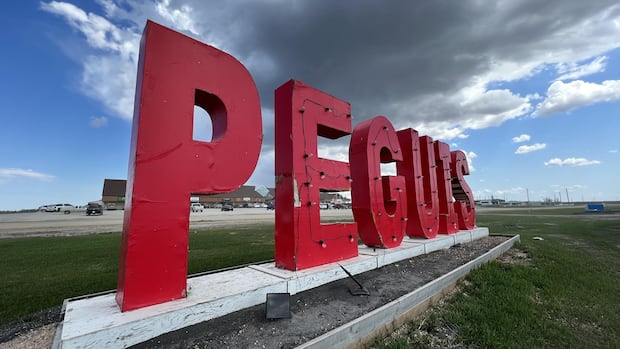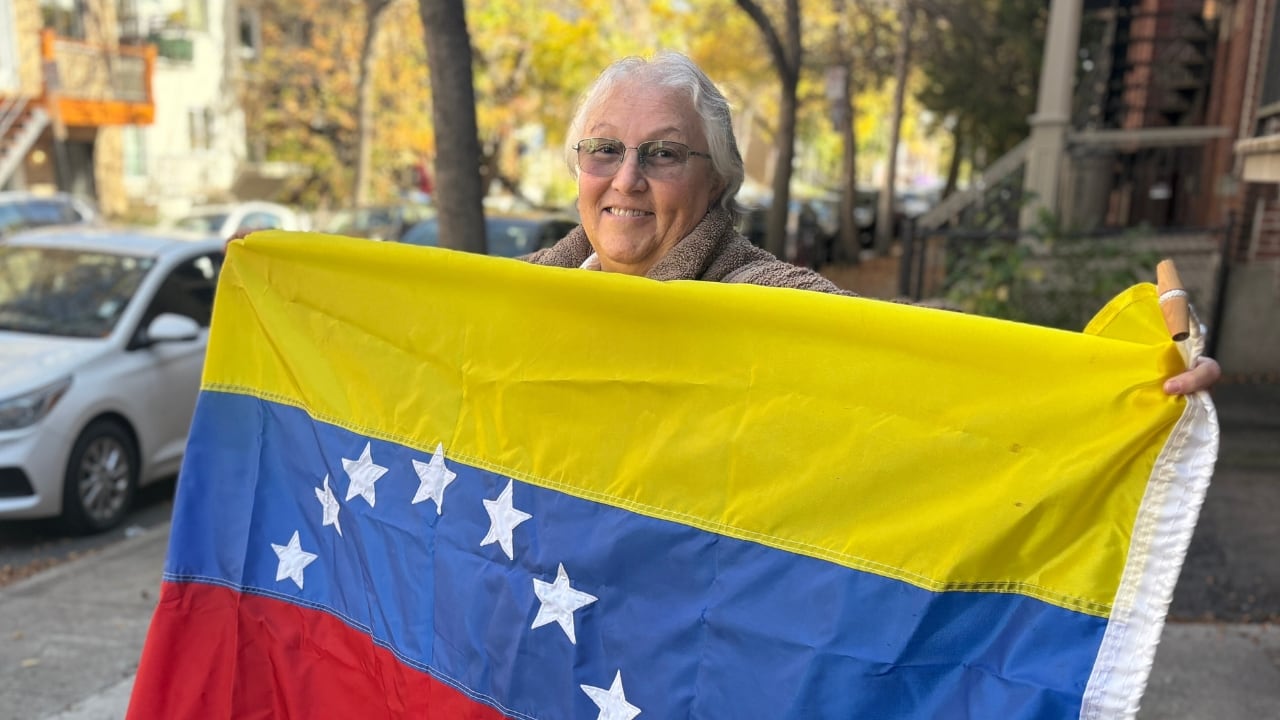On the community’s fourth day without power, Pikangikum First Nation’s chief says the situation is becoming dire.
“There’s minimal access to clean water, limited fuel supply, a limited number of generators,” Chief Paddy Peters told CBC News on Tuesday afternoon.
“We have to deal with the power outage plus a forest fire, and it’s created an extreme situation in my community.”
Power outages are affecting five other First Nations in northwestern Ontario, after wildfires damaged utility poles along the Wataynikaneyap Power line on Saturday.
In a statement issued late Tuesday afternoon, Wataynikaneyap Power said the goal was to restore power by end of day Tuesday, but that there were a lot of challenges, “including logistics around lodging far from the work sites, moving crews around by air, weather affecting flights, [and] risk of additional damage needing to be fixed.”
Pikangikum First Nation has been without power for four days after wildfires damaged six hydro poles in northwestern Ontario, causing outages in as many First Nations. Here’s the latest from Chief Paddy Peters about what the remote Ojibway community is going through.
“Worker safety and restoration efforts are top priority,” it said.
Grand Chief Alvin Fiddler of Nishnawbe Aski Nation (NAN) says he anticipates outages will continue for a few more days.
We have to deal with the power outage plus a forest fire.— Chief Paddy Peters, Pikangikum First Nation
“It’s going to take a while, I think, because of the multiple sites where the grid has been compromised. That will require some time and effort to ensure that the crews are able to go in there safely to do the necessary repair work,” Fiddler said.
Wataynikaneyap Power says it’s working alongside Ontario’s Ministry of Natural Resources (MNR), Hydro One and the Provincial Emergency Response Organization “to safely organize crews and material for pole replacements.”
“Crews are prioritizing poles based on criticality to restore power. Further ground crews arrived yesterday and more will be arriving today to assist,” it said.
Meanwhile, Peters says the affected communities are dealing with food spoilage, overheating in buildings and a shortage of essential supplies.
While Deer Lake and Sandy Lake have access to diesel generators, Poplar Hill, North Spirit Lake and Keewaywin First Nations have no backup power available; Pikangikum’s only source is the community’s school.

‘All that food supply is now gone’
NAN represents 49 First Nations across Treaties 9 and 5, three of which are experiencing power outages. The remaining three facing outages are under the Keewaytinook Okimakanak tribal council.
The food spoilage seen in these communities speaks to the need for better long-term solutions for emergency supplies in the north, Fiddler says.
“Many of the families go out in the springtime to harvest geese and other game and they stock up, they fill up their freezers, but because of what’s happened with the loss of power, all that food supply is now gone,” he said.
Wataynikaneyap Power says its CEO has advocated for an immediate delivery of food and other supplies, “and is working with Nishnawbe Aski Nation, Keewaytinook Okimakanak, and [the] federal government to expedite approvals for emergency support.”
CBC News has reached out to Indigenous Services Canada for comment.
Meanwhile, Prime Minister Mark Carney convened the government’s Incident Response Group with ministers and senior officials Tuesday to discuss the country’s escalating wildfire situation, particularly in Ontario and Manitoba. Carney is expected to meet with First Nation leaders on Thursday.
“The government remains in heightened vigilance and stands ready to mobilize additional federal resources to protect and support Canadians, in any and all aspects,” the Prime Minister’s Office says.
MNR in ‘constant contact’ with First Nations
Chris Marchand, a fire information officer based in northwestern Ontario, says fire operations staff are working closely with utility technicians to repair damaged electrical infrastructure.
Overnight rainfall brought some reprieve from the fires on Tuesday, “and this will help reduce fire behaviour in the short term,” Marchand added.
Pikangikum First Nation is continuing to relocate its most vulnerable members to Thunder Bay and Sioux Lookout due to a 31,000-hectare fire just seven kilometres away, known as Red Lake 62.
Emily McLaughlin, a spokesperson for the MNR, told CBC News the province is continuing to support evacuation efforts; “working closely” with Pikangikum leadership, the Independent First Nations Alliance and Indigenous Services Canada.
While Peters says he’s frustrated with how long it took the MNR to notify him of the nearby wildfire, McLaughlin says the ministry “is in constant contact with First Nations communities throughout [the] fire season, providing them with updates about conditions and information about fires that could be a danger to their community.”
“The decision to evacuate is made by First Nation community leadership. Each community sets its own criteria for the evacuation and return of community members, supported by information, and best advice from MNR,” she said.







